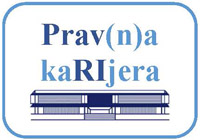List of courses in foreign languages
Constitutional law
- Details
- Category: Integrated undergraduate/graduate university Study of Law
| Year of study | ECTS | Language 1 | Language2 | |
|---|---|---|---|---|
| I | 8 | English |
Course coordinator
|
|
| Prof. dr. Sanja Barić |
Course objective:
Constitutional law is a foundational branch of law that studies the institutions and processes of government on the level of individual states, local self-government and, increasingly, in the supra-national domain. It examines the ways public power is constituted, restricted and its reach towards the citizenry modulated. This course furnishes students with a basic understanding of the government under Croatian law and abroad. It includes an overview of fundamental rights guaranteed under the Constitution, regional and international instruments and also covers an introduction to the constitutional dimensions of the European Union.
Course content:
The course is divided into several main sections. In the first place, we study the notions of the constitution and constitutional government/constitutionalism. Following this basic introduction to the law of contemporary limited government, we delve in some depth into the different ways it may be organised. This does not only include a discussion on separation of powers, but also includes the law constituting parliaments, the executive power and the judiciary. Matters related to organising representative democracy, especially elections, are covered along with direct democracy, particularly referendums. These topics are discussed from the viewpoint of Croatian law, but instructive analogies are drawn with German, British, French and U.S. law. We also deal with a variety of human rights issues, particularly with regard to the conditions under which they may be limited. Towards the second half of the course, particular attention is paid to constitutional features of federalism, especially in the European Union and matters of constitutional adjudication. Special bodies for ensuring regular constitutional operation of the government, such as ombudsmen and commissions for conflict of interest. We conclude the course with a reflection on the future of constitutional law in the 21st century.
















